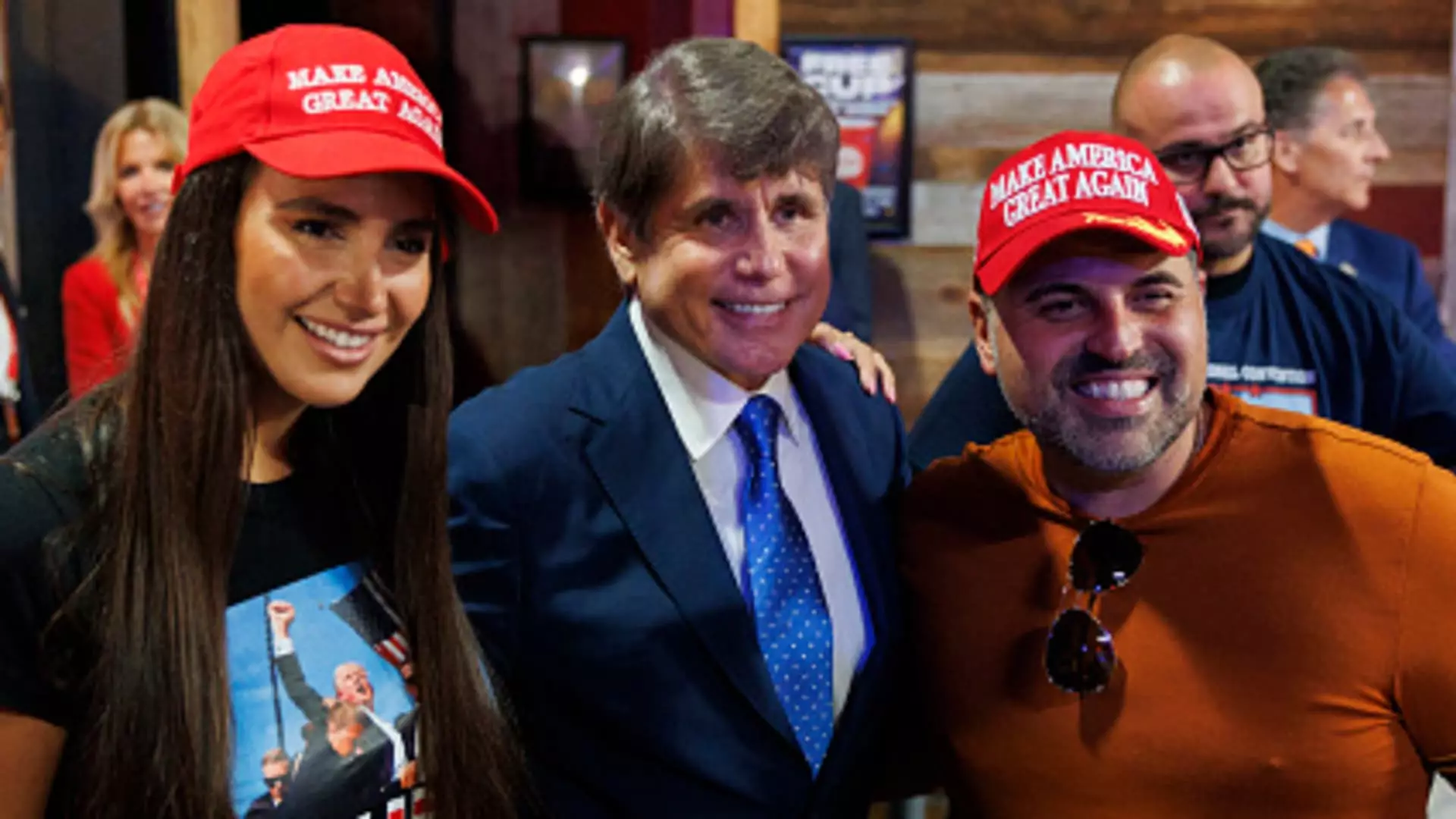In a surprising turn of events, former President Donald Trump granted a full pardon to Rod Blagojevich, the disgraced ex-governor of Illinois, on a Monday that stirred much debate. Blagojevich, who governed as a Democrat from 2003 until his impeachment in 2009, had served eight years in prison for corruption charges tied to his notorious scheme to sell Barack Obama’s vacated Senate seat. This pardon follows a previous commutation of Blagojevich’s 14-year sentence in 2020. At the Oval Office ceremony where he announced the decision, Trump extolled Blagojevich as a “very fine person” deserving of this measure, which raises questions about the motivations that underpin such an extraordinary act of clemency.
The scandal surrounding Blagojevich began when federal authorities uncovered evidence of his attempts to leverage political favors for personal gain, including the sale of Obama’s Senate seat and extortion against a children’s hospital executive for campaign donations. These actions culminated in a 2009 conviction for lying to federal agents, with further retrials reinforcing his culpability in a high-profile case that epitomized governmental corruption. Blagojevich’s fall from grace is a glaring reminder of the pervasive issue of public officials exploiting power for profit—a reality that raises prevalent concerns about the integrity of political systems in America.
Interestingly, the ties between Trump and Blagojevich can be traced back to Trump’s reality television venture, “The Celebrity Apprentice,” where Blagojevich appeared in 2010 while embroiled in legal battles. This singular connection may have fostered a bond, leading to aspirations for pardon that lingered in legal discussions. Blagojevich’s attorney, Shelly Sorosky, indicated that they had considered the likelihood of a pardon as an important aspect of their long-term strategy. This intertwining of television and politics adds a layer of modernity to Blagojevich’s narrative, portraying him not merely as a politician but as a pop culture figure navigating a complex legal milieu.
Trump’s decision to pardon Blagojevich invites substantial scrutiny and criticism, particularly from Illinois’ Republican Congressional delegation, who warned that pardoning such a figure sends a troubling message about accountability in governance. They articulated a valid concern that the pardon diminishes the gravity of public corruption—a persistent issue that undermines trust in state leadership. This executive action, viewed through the lens of political expediency, poses significant implications for how future acts of clemency will be perceived amid an already contentious political landscape.
Ultimately, the decision to pardon Rod Blagojevich epitomizes the complex relationship between power, accountability, and the public’s demand for integrity. As America continues to grapple with the echoes of past political scandals, the legacy of figures like Blagojevich serves as an enduring reminder of the imperative need for transparent governance. While Trump may have sought to highlight Blagojevich’s potential for redemption, the enduring ramifications of such a pardon will continue to evoke discussions on corruption’s deep-rooted presence in politics. The intricate dance between celebrity status and public service remains a fascinating yet troubling facet of the American political narrative.


Leave a Reply